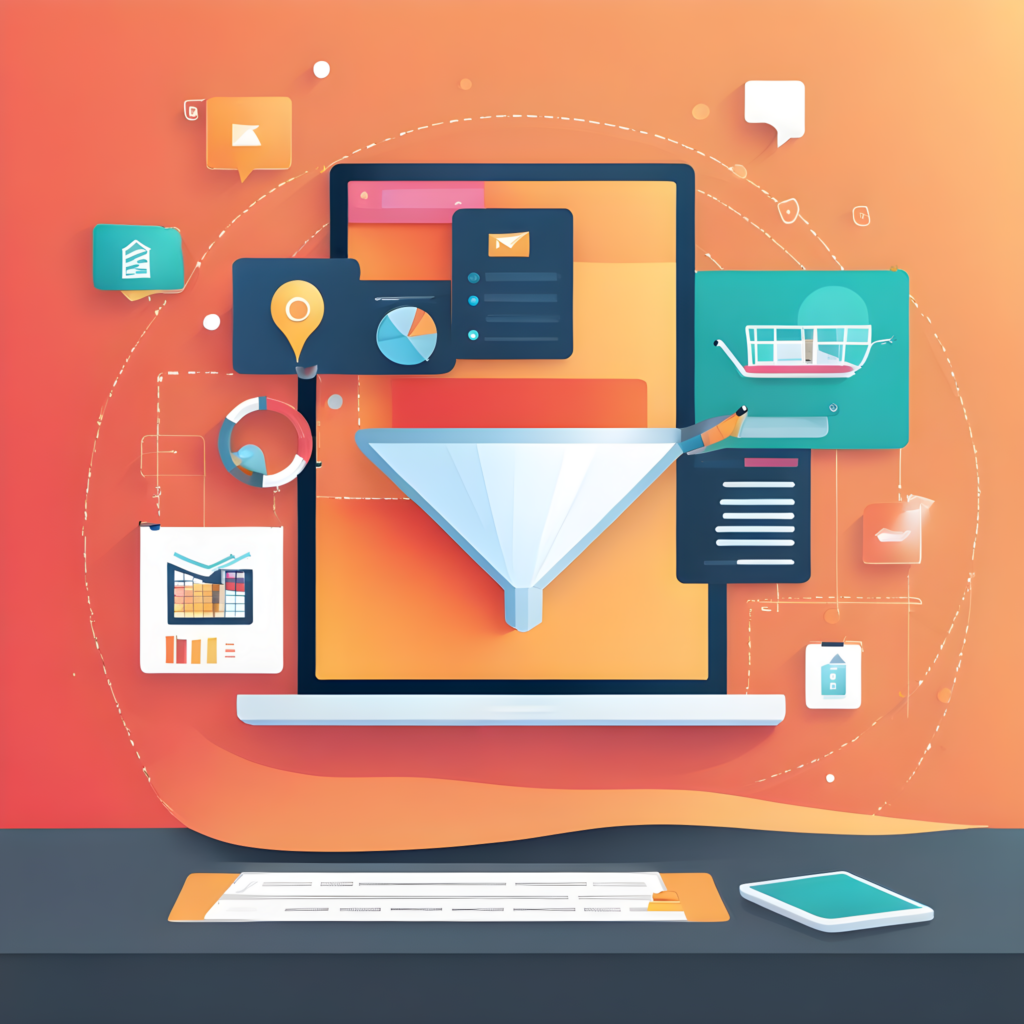Understanding the Marketing Funnel: A Comprehensive Guide

In the ever-evolving world of digital marketing, understanding the concept of a marketing funnel is crucial. It serves as a fundamental framework for businesses to attract, engage, and convert potential customers into loyal brand advocates. In this article, we will delve into what a marketing funnel is, its components, and how it plays a pivotal role in modern marketing strategies.
What is a Marketing Funnel?
A marketing funnel, often referred to as a sales funnel, is a visual representation of the customer’s journey from being aware of a product or service to making a purchase decision. Imagine it as an actual funnel, wide at the top and gradually narrowing down to a small opening at the bottom. The idea behind the marketing funnel is to capture and guide potential customers through a series of stages until they become paying customers.
Stages of the Marketing Funnel
The marketing funnel typically consists of several stages, each with its specific objectives and strategies:
- Awareness: This is the widest part of the funnel, where the goal is to make potential customers aware of your brand, product, or service. Strategies at this stage may include social media marketing, content marketing, search engine optimization (SEO), and paid advertising.
- Interest: Once individuals become aware of your brand, the next step is to pique their interest. Engaging content, informative blog posts, and compelling videos can help maintain their attention and lead them further into the funnel.
- Consideration: In this stage, potential customers are evaluating their options and considering your product or service. You can nurture their interest with email marketing, webinars, and detailed product descriptions.
- Intent: At this point, prospects are showing a clear intent to make a purchase. They might subscribe to your newsletter, request a demo, or add items to their cart. This is where personalized offers and targeted marketing can be highly effective.
- Evaluation: Prospects in this stage are scrutinizing your offering, comparing it with competitors, and seeking reviews and testimonials. Providing transparent information, product reviews, and case studies can help them make an informed decision.
- Purchase: This is the ultimate goal of the funnel—converting potential customers into paying customers. A seamless checkout process, easy payment options, and exceptional customer service are essential here.
- Post-Purchase: The relationship with the customer doesn’t end after the purchase. It’s crucial to provide post-purchase support, ask for feedback, and offer loyalty programs to encourage repeat business and turn customers into advocates.
Why is the Marketing Funnel Important?
- Strategic Planning: The marketing funnel serves as a blueprint for planning your marketing efforts. It helps you allocate resources effectively at each stage to maximize your chances of conversion.
- Customer Understanding: By mapping out the customer journey, you gain a deeper understanding of your audience’s needs, behaviors, and pain points, allowing you to tailor your messaging accordingly.
- Optimization: Monitoring and analyzing the funnel’s performance allows you to identify bottlenecks and areas where potential customers drop off. This data-driven approach helps you refine your marketing strategies for better results.
- ROI Measurement: The marketing funnel enables you to track the effectiveness of your marketing campaigns, allowing you to calculate the return on investment (ROI) and make informed decisions about where to allocate your budget.
Conclusion
In the digital age, the marketing funnel remains a fundamental concept for businesses of all sizes. It guides potential customers through a well-defined journey, from awareness to conversion, and helps marketers strategically engage and nurture leads. By understanding the marketing funnel and its stages, businesses can optimize their marketing efforts, improve customer relationships, and ultimately drive growth and success.

